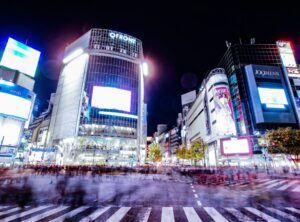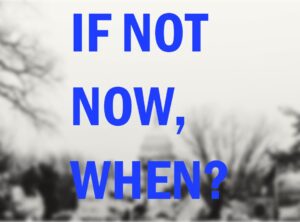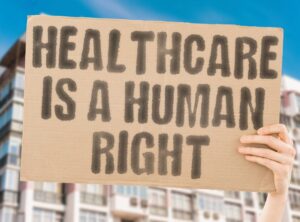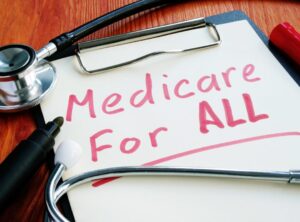If you have to go to a “hospital or pharmacy where you don’t speak the language”…
Imagine this.
Suppose you are traveling abroad, suddenly suffering from a high fever or feeling ill, and have no choice but to go to a local hospital.
At the reception desk, you do not know what they are asking you, and in the examination room, you cannot communicate your symptoms well.
You return to the hotel with an uneasy feeling, not knowing how to use the prescribed medication or explain the side effects–and you return to the hotel with an uneasy feeling.
How much anxiety and loneliness would you feel when placed in such a situation?
Just because you do not understand the language, the place of medical care, where they are supposed to feel “safe”, becomes a “hotbed of anxiety“.
And you may feel this way.
In medicine, not being able to communicate is like not having a lifeline”
The same thing is happening in Japan.
This is actually a reality that many foreigners and tourists in Japan feel every day.
First, let us look at the current changes in Japanese society.
According to the latest statistics from the Ministry of Health, Labor and Welfare and the Immigration and Residency Management Agency, the number of foreign residents in Japan as of 2023 will be approximately 3.22 million, the highest number ever recorded.This is equivalent to about 2.5% of Japan’s total population.Moreover, many of these visitors are spread out not only in urban areas, but also in regional cities and tourist destinations.Furthermore, according to data from the Japan Tourism Agency, it is predicted that the number of annual foreign visitors to Japan will exceed 50 million by 2025.Already in 2024, the number of monthly visitors reached nearly 4 million, and foreign tourists can be seen everywhere in the city.
In other words, the number of people who become ill or need medicine in Japan without understanding Japanese is steadily increasing.
The reality is that language barriers keep “health” away.
So, when these foreigners become ill, do they receive medical care with peace of mind?
The answer, unfortunately, is “no.
Many medical institutions have received comments such as “there is no interpreter,” “I can’t read the medical questionnaire,” and “I can’t understand the explanation of the medicine. In many cases, misunderstandings occur in hospital interactions, resulting in the wrong medication or worsening of medical conditions. In fact, most medical institutions and pharmacies do not provide foreign language support.
In the medical world, the smallest discrepancy in information can be life-threatening. That is why language barriers should never be taken lightly.
How do you feel when a foreigner falls ill in Japan?
I believe this is the same anxiety and fear you may feel in a foreign country where you do not speak the language.
There is a film that depicts this situation in a striking way.
That is Sofia Coppola’s “Lost in Translation”.
The story takes place in Tokyo. American actor Bob (Bill Murray) and a young woman, Charlotte (Scarlett Johansson), spend their days alone and confused in Japan, where the language and culture are different.
Particularly memorable are the scenes in which Bob appears in Japanese commercial shoots and TV programs.
He has no idea what the director and staff are saying, and the interpreter is unable to fully explain.
A sense of alienation and confusion is conveyed from the screen, as if ” something is lost as we go along “.
This is a fiction, but it is also a reality that many foreigners and tourists in Japan face on a daily basis.
“Lost in Translation” is not simply a film about the cross-cultural experience of not being able to communicate.
More than that, it is a film that quietly but deeply confronts the loneliness of not being able to communicate.
The characters, who are unable to communicate smoothly due to the language barrier, eventually begin to feel a sense of resignation, thinking that they will never be able to understand each other anyway.
This leads to a sense of alienation and isolation in a foreign land.
What this film teaches us is the true weight of “not being able to communicate”.
It is not simply a matter of translation, but also a deeper issue of how to build trust and a sense of security between people.
In the medical and pharmacy settings,
“Are you sure you’re okay with this medicine?”
Are there any side effects?
In fact, I have this symptom…”
The most important thing is to hear the patient’s “voice from the heart,” in which he or she expresses his or her concerns.
However, if the patient’s voice is not heard due to language barriers, or even if it is heard, the medical staff is unable to recognize the patient’s anxiety, it is truly medical care that does not communicate with the patient’s heart.
Our pharmacies serve many patients on a daily basis. Recently, we have seen an increase in the number of patients whose native language is not Japanese.
They ask, “I only speak English, is that OK?”
I would feel safer if there were explanations in Chinese…”
“My child has a fever. But I’m afraid I won’t be able to understand the language…”
Whenever we hear such voices, we strongly feel that “healthcare should be equally accessible to everyone.
We believe that healthcare should be equally accessible to all.
What we work on:
We will not let “Multilingual Pharmacy” be just a slogan.We are promoting the following concrete initiatives.
① Multilingual customer service and translation
We have members of our staff who can provide foreign language support. We have also introduced translation software using AI and CAT tools, smart translators, and voice applications for support.
② Distribution of multilingual medication instructions and precautions
For information on the correct use of medications and precautions for side effects, we provide translated materials in English.
③ Official LINE and email consultation service
We accept follow-up in foreign languages as well as fast-track reception on line.
④ In-house training specifically for dealing with foreign nationals
Ongoing training is also provided to ensure that the entire staff understands cultural differences and differing values regarding medical care.
⑤ Cooperation with local support groups and medical institutions for foreign residents
We work with the government and local support groups, and also serve as a bridge to other medical facilities when necessary.
Why do we go this far?
– Acting is believing –
This is because we believe that “Healthcare is a human right” – medical care is a right for all people.
We want to deliver medicines with peace of mind to the “person” in front of us, regardless of nationality, culture, language, or length of stay. Our desire to “help people get well” and “make them feel better” through our medicines is the same for everyone.
What pharmacies can do as a gateway to a multicultural society
Japan will certainly move toward a “multicultural society” in the future.
People of different languages and cultures will live in the same cities, use the same medical institutions, and visit the same pharmacies.
At that time, medical care that is “safe and accessible to all” will be a major support for society as a whole.
And we, pharmacies, are at the forefront of this effort.
We believe that pharmacies should be the gateway to “medical care that transcends language barriers.
Finally: health care is a human right.
Healthcare is a human right.
This is not just a slogan, but a strong social message that has resonated with many people around the world.
One of the people who made the term widely known was American politician Bernie Sanders.
As a U.S. Senator, he has long advocated the need for a “guaranteed health care system for all. Especially in the U.S., where the country relies heavily on private health insurance and where there are serious health disparities due to poverty and uninsured, Sanders has clearly stated his position that “health care is not a commodity, but a human right,” and has worked to realize a universal health care system (Medicare for All).
Based on this belief, he repeatedly states
“Healthcare is a human right, not a privilege.”
We strongly identify with these words because we feel that these are precisely the values that should be shared by all people, transcending national and institutional differences.
That is why we want to put our philosophy of “Healthcare is a human right.” into practice at our place of work, the pharmacy.
Our goal is to become a pharmacy where all people can feel “at ease” by transcending language barriers and cultural differences.
We believe that this is our mission and the first step toward supporting the future of healthcare.
“Even though I didn’t understand the language, they responded to me with a smile.”
“They explained things to me in polite English, which really put my mind at ease.”
We are gradually receiving more and more such comments.
It may be a small thing, but if it becomes a reason for people to think “I will live in this country” or “I want to come back to this country” —
We believe that our pharmacy’s efforts are more than enough to make a difference.
Multilingualism is not about “translating the language” but about “opening the mind”.
The multilingual support that our pharmacies are aiming for is not just about having translation apps or more multilingual signage.
It is to create an environment where patients feel that they can talk with us with confidence, and it is also an expression of our sincere attitude that
“We want to understand you”.
The phrase ” Healthcare is a human right. ”
is our wish that “all people can receive heart-to-heart medical care without the barriers of language”.
That is why we are committed to becoming a “Multilingual Pharmacy”.









